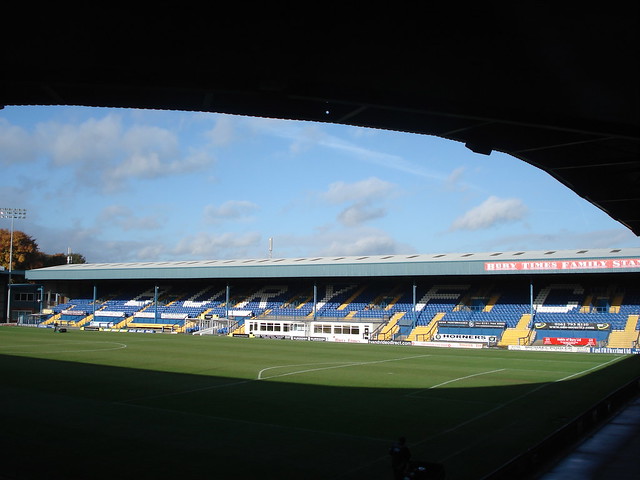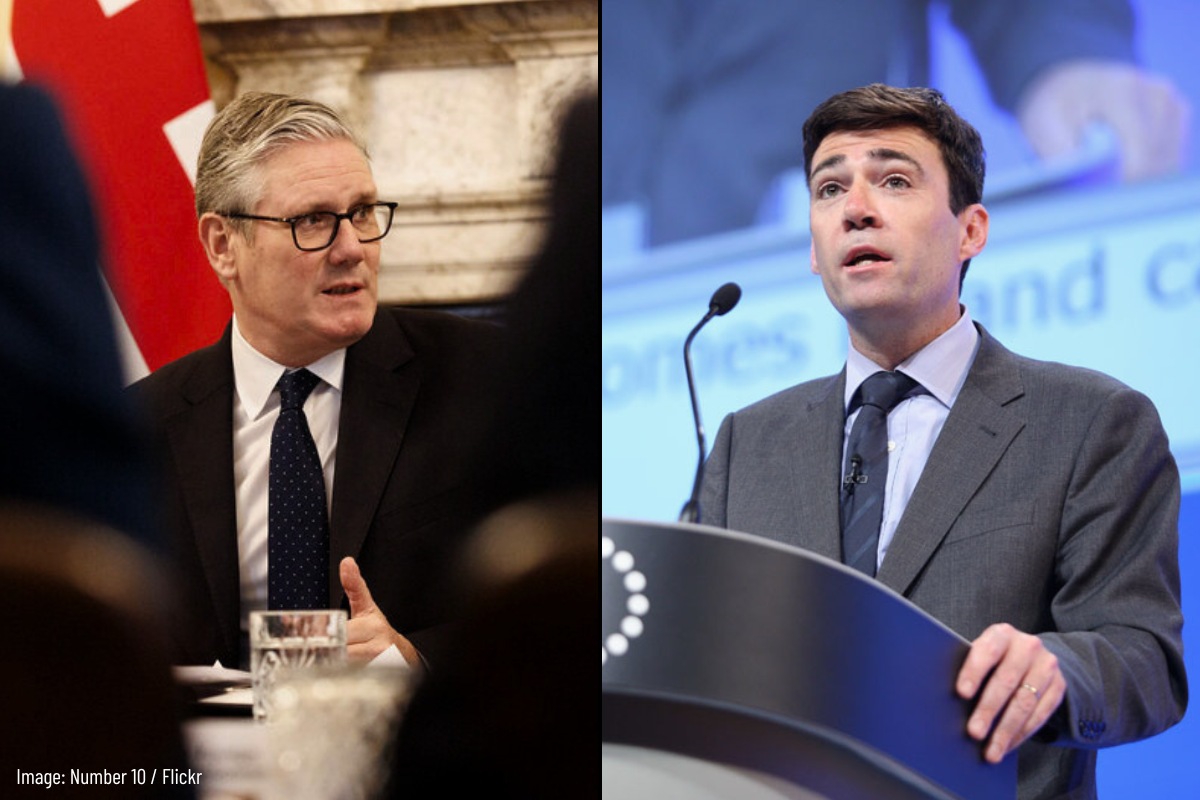The expulsion of Bury F.C. by the EFL is part of a broader trend of financial insecurity as club owners gamble to maximise profits. Until they are taken under fans’ control, historic clubs and their fans will continue to suffer.
Tuesday 27th August 2019 is a day that will long be remembered in English football and the Greater Manchester town of Bury. For the first time since 1992, and only the second time in modern history, a professional English football club left the Football League for financial reasons.
While, at the time of writing, Bury F.C. still exist and there are talks of trying to re-enter next season in League Two, it would seem extremely likely that the club will be liquidated as it will be virtually impossible for the club to survive until next season with no revenue from gate money or TV contracts. Bury are not the first club to suffer extreme financial difficulties, but the loss of a club who have competed in the English Football League (EFL) for 130 years has brought difficult questions for those at the top about the divide between the richest clubs and everyone else.
Many consider the wider financial crisis in English football to be the greatest in its history. Bolton Wanderers appear to have narrowly avoided following Bury into expulsion with a last-minute takeover, and thereby ironically avoiding a similar scenario to the other time that EFL clubs left due to financial reasons, when two clubs folded in 1992 (Aldershot and Maidstone).
Many fans, of all teams, are asking questions as to how this could happen. How could someone pass the “fit and proper person” test to become an owner when they have driven many companies into liquidation? How can a club overspend when financial fair play regulations are supposed to prevent club’s owners from gambling their futures? When you look deeper into the current crisis, it becomes clear that this is not a case of rogue owners, but of the system of clubs being privately owned that encourages owners to gamble to gain success and profit.
Gambling for profit
 Bury’s problems are certainly long-standing and complex. The serious problems began in 2013, when the club was taken over by Stewart Day. The club was then in League Two and Day made promises of promotion to the Championship and a new stadium.
Bury’s problems are certainly long-standing and complex. The serious problems began in 2013, when the club was taken over by Stewart Day. The club was then in League Two and Day made promises of promotion to the Championship and a new stadium.
Day was certainly not the first and won’t be the last football club owner to make such extravagant promises. Day then sanctioned spending on players that was well in excess of what the club could afford, with the difference being made up by Day, clearly in the hope of achieving enough promotions that he could sell for a large profit. The club also took out very high interest loans, which were secured on the stadium, to finance the spending.
The problems began when Day’s other businesses outside of football, mainly companies with interests in property, began to suffer financial difficulties and many went bankrupt. This meant that he could no longer make up the difference to allow the club to continue paying the bills.
With the club looking to be in serious financial difficulties and appearing to be on the brink of liquidation, Steve Dale took-over the club in December 2018 for a sum of £1. The EFL did not prevent this takeover, despite Dale having a record of asset-stripping and liquidating companies to maximise profit. With Bury being issued with a winding-up petition for not paying a tax bill and having not paid the player’s wages in April, Dale put the club for sale after claiming that the extent of the financial crisis had been hidden from him when he bought the club.
Lies and deceit
Despite having made an agreement with the club’s creditors to pay back 25% of the debt with the rest being write-off, the EFL requested proof that Bury could fund this and also had the finances to finish the season. When this was not provided and various takeovers fell through despite various extensions being granted by the EFL, the club had its league membership revoked and was expelled.
Throughout the crisis at Bury, the attitude that Steve Dale showed caused many to question why such a person was allowed anywhere near a football club. Dale repeatedly lied by claiming that he had provided the proof of having the funds for Bury to finish the season to the EFL and that they were constantly (excuse the pun) ‘moving the goalposts’. Despite this, Dale made a statement on the day of the deadline begging fans to pledge the £2.7 million that was needed to avoid expulsion and finish the season!
Additionally, several days before the deadline, Dale was involved in an incredible argument live on the radio with the club’s captain Stephen Dawson. During the exchange, Dale claimed that Dawson was lying about only being ‘paid’ 2 months wages out of the last 5 months (by the player’s union the PFA) and lying about being on the verge of losing his house. The claims made by Dawson have later been backed up to prove that Dale was also lying about this. Dale is also facing an investigation by the Serious Fraud Office into allegations that he misled Day and Bury’s other creditors about the purchase of a debt owed by the club to one of Day’s other companies by Dale’s daughter’s partner.
Capitalism to blame
When the dust settles on the scandal at Bury F.C., the questions turn to who was at fault? While clearly the role of asset strippers and profiteers such as Stewart Day and Steve Dale and the lack of regulation and action by the EFL cannot be ignored, the wider financial crisis in English football deserves much greater analysis.
With Bolton Wanderers having narrowly avoided a similar fate and Southend United and Morecambe having also reported paying their players and staff late, there are clearly much wider issues. Numerous clubs have reported record losses and over 75% of the 72 clubs in the EFL have reported losses in their latest accounts. Several clubs in the Championship (Sheffield Wednesday, Derby County and Reading) have sold their stadium to their owners to continue very high spending without breaching FFP regulations. Many have commented on the fact that a disturbingly large number of clubs could be only a few bad months away from similar problems to Bury.
In response to the scandal and expulsion of Bury, the EFL have begun an independent review of their regulations in an attempt to prevent a re-occurrence. It is widely expected that the review will recommend changes to strengthen the fit and proper person test, and greater checks to ensure that clubs can fund themselves. However, if it is simply a case that club owners who risk their futures by overspending to achieve success, then it would mean that 75% of the EFL club owners are simply ‘bad owners’.
The reality of the financial crisis in English football is that it has nothing to do with inadequate regulations or unscrupulous owners such as Stewart Day and Steve Dale. It seems illogical for any football supporter to gamble a football club’s future in an attempt to win promotions and achieve sporting success. Yet this is perfectly logical when clubs are simply seen as money-making machines for private owners who are intent on making as much profit as possible.
The answer therefore is to kick the profiteers out of football and return the game to its roots. Clubs must be owned and run by their fans, who see clubs for the community value that they represent rather than profit making businesses for unscrupulous private owners.






